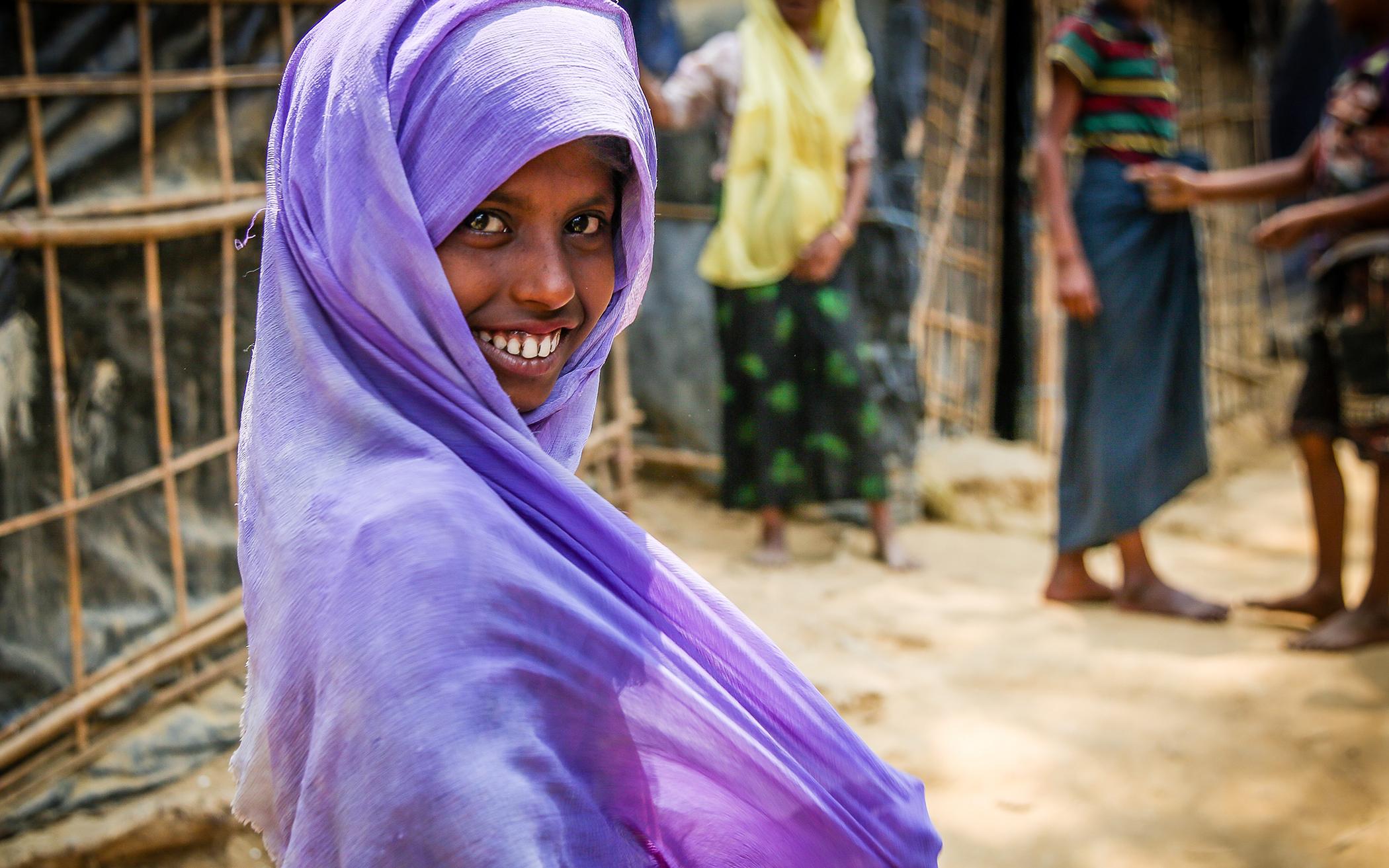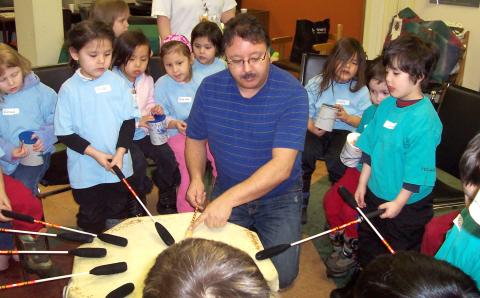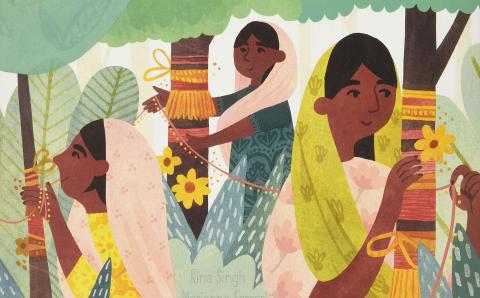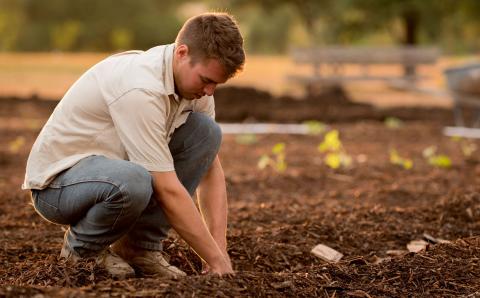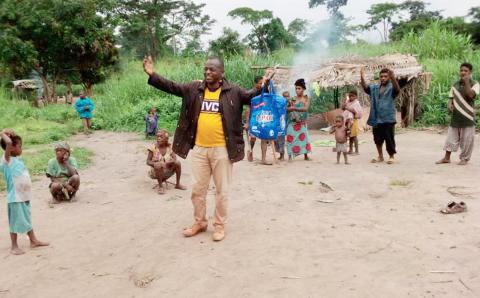When COVID-19 erupted worldwide last March, 16-year-old Ekadashi and her family in Asia were already struggling.
Ekadashi’s father had been in poor health, became unemployed, and then was bedridden. Under pandemic restrictions that made it impossible to get to work, her mother also lost her job as a housemaid. Ekadashi had to drop out of school, and her family slid deeper into poverty.
With little to no income, Ekadashi’s parents decided the best action for the whole family was to arrange her marriage to a man in their village. Ekadashi would become the financial responsibility of her husband’s family, and the dowry they would receive for her would keep them from hunger and homelessness in the days ahead. The decision would help the family survive the pandemic, but Ekadashi’s future was bleak.
Then, a World Renew partner connected with the family and found a new job for Ekadashi’s mother. A women’s group in their community helped them register for food distributions, and Ekadashi enrolled in a tuition-free school program. With support from World Renew, Ekadashi’s family now has some economic stability in the COVID crisis, and her opportunities for a fulfilling future have improved.
Similar to Ekadashi, there are many people who have experienced social and economic setbacks since the COVID-19 outbreak swept the globe. By the end of the year, the number of people living in extreme poverty worldwide rose by an estimated 115 million.
In fact, crises such as the coronavirus outbreak affect those who live in poverty first and most. In the COVID-19 pandemic, ministries of the Christian Reformed Church were able to respond with resilience through partners and networks in North America and around the world.
“We know that people who are at highest risk of falling into extreme poverty also face the greatest challenges, pain, and loss during COVID,” said World Renew Canada director Ida Kaastra Mutoigo. “This includes thousands of displaced persons like the Rohingya in Bangladesh, Syrian refugees in Lebanon, and many others who are barely surviving their current circumstances.”
In response, CRCNA ministries reached out in new and expanded ways to ensure that needs would be met.
Providing Emergency Supplies
In North America, many churches turned to online services at the start of COVID-19. But several church plants didn't have the funds or technology to help keep people connected. To meet this need, Resonate Global Mission provided technology grants.
Resonate also provided COVID-19 relief grants to help church plants and campus ministries care for communities and students. Many international students studying at Western Michigan University, for example, weren't able to travel home, and some of the students lost their jobs. A grant from Resonate helped International Campus Ministry to provide food, money for rent, and other supplies to more than 3,000 students over just a few months.
Around the world, World Renew provided disaster programs specifically designed to prevent the spread of the virus. These included distributing emergency food and hygiene supplies, providing families with food vouchers, and sharing vital health information.
In one country in Africa, children and adults met in small groups or with their families to learn about face masks, social distancing, and handwashing. They discovered how to identify harmful practices and misinformation about COVID-19 that were prevalent worldwide in the first months of the outbreak.
“The pandemic radically changed our lives and work,” said a World Renew development worker. “We are thankful to God for wisdom and creativity in serving people in need during the COVID-19 outbreak and other life-threatening circumstances. Trusting God and being available are at the heart of World Renew’s ministry. Our faith inspires us and our partners to continue to serve him and others in uncertain times.”
One Christian partner worked through World Renew community groups to establish 1,700 kitchen gardens that helped many families and neighbors access nutritious food. One participant said, “Our kitchen gardens were even more valuable for feeding our families as the local food markets became unreliable or just closed.”
The families are also using their hygiene training with a new awareness of its value. There has been a surge of interest in handwashing stations; program participants in every community where World Renew works had already learned how to construct this simple mechanism made of sticks, rope, and a gallon of water.
“We can now clearly see that God ordered our steps,” said Bridget, a health program leader and committed hand washer. “God saw the end from the beginning when he brought about introducing handwashing and hygiene programs in our community before COVID-19 started!”
Working Through Churches and Christians
CRCNA ministries provided resources to help Christian churches safely reach out to their neighbors during the pandemic with broader health education, information, and the gospel.
In West Africa, World Renew distributed a workbook for adults called Loving Your Neighbor in the COVID-19 Pandemic and lessons for children called Peace, Be Still to local congregations. The children’s workbooks equipped parents and guardians with the tools to support their children spiritually, emotionally, and physically during the pandemic.
In Berlin, Germany, Resonate Global Mission missionaries Mary Buteyn and David Kromminga partner with the Berlin City Mission to lead a church plant with and for newcomers. They adjusted quickly to the challenges and restrictions caused by COVID-19 as well.
“People, especially those in the refugee community, are experiencing so many other losses. There’s a kind of heart desire for contact with other human beings. And if we as a church can provide that, and also connect with God, that’s part of our mission,” Kromminga said about the importance to maintain some sort of community even when Sunday worship could not continue in person.
As the church begins meeting in person again on Sundays for socially distanced and masked worship, they have also continued meeting online. Buteyn and Kromminga have witnessed much growth, spiritually and relationally, through the online practice.
And as people began spending more time at home, ReFrame Ministries staff around the world began developing new video and radio programs that offered timely biblical messages that people could access while adhering to stay-at-home orders.
“I am not seeing anyone other than my family these days due to coronavirus,” said Kanbe, a listener in Japan. “Still, when I hear your voices on the radio each day, it makes me feel like I’m seeing you, and I feel energized.”
Responding to Hidden Needs
With COVID-19 lockdowns around the world, economic hardships were not the only challenges facing families and congregations. As in Ekadashi’s story, pandemics can cause many difficulties behind closed doors. This includes increased gender-based violence, domestic violence, child marriages, and mental health issues.
World Renew increased its efforts to help girls and women complete their education, stay unmarried throughout childhood, remain free from sexual or domestic violence, and become leaders in their communities.
CRCNA ministries also offered trauma-healing training and opportunities to the communities they served. This helped people to process the trauma of the pandemic itself but also to name and address some of the consequences.
“Men and women who participate in the trauma-healing program begin to shift their thinking about gender equity,” said a World Renew development worker. “One result is that women gain access to and control their own resources. Couples begin to share decision-making and workloads, and as a result, healthy relationships develop and domestic violence decreases.”
With so many needs during the coronavirus pandemic, ministry leaders were also weary and stretched thin.
“Missionaries have been giving themselves to the people around them as if they were running a 100-meter dash. Their souls are tired and broken,” said Paul Yu, Resonate’s regional mission leader for East and Central Asia.
That’s why he led a discipleship course for 30 missionaries from four different countries to take time to rest and recharge for ministry.
“The need (was) great,” Yu said . “I can see they (were) really hungry for genuine and intimate connection with God.”
Fostering Resilience
As in North American CRCNA congregations, one of the things COVID-19 taught ministries especially well was to be adaptable, creative, and flexible. This has been a lesson learned by those they serve as well.
“In the pandemic, we recognized that ministry must be resilient,” said World Renew U.S. director Carol Bremer-Bennett. “We do a lot of work to support our staff and partners, but at the center, the process and transformation is owned by the communities themselves. They rose to the challenge of travel restrictions and new technology and helped one another with education and PPE (personal protective equipment).”
In one income-boosting program in Africa, for example, leaders of established village savings and loan associations had to step in when World Renew staff were unable to travel to visit. These community leaders, mostly women, began coaching and supporting others. They promoted household-level economic improvements and encouraged improvements in health care, food security, peacebuilding, gender justice, leadership development, and adult literacy.
Some of these leaders became so well-respected in their communities that they were considered essential service providers and were exempt from travel restrictions during the pandemic lockdowns.
“It is amazing how local leaders have grown in these times,” said Bremer-Bennett. “God has been gracious. Looking back now, we can see that as a church, we didn’t just pivot; we allowed the paradigm to shift.”
About the Authors
Beth DeGraff is a Senior Project Manager with World Renew. World Renew works in about 30 developing countries worldwide, living justice, loving mercy, and serving Christ.
Laurisa O-Brien is a Communications Writer with World Renew. World Renew works in about 30 developing countries worldwide, living justice, loving mercy, and serving Christ.

